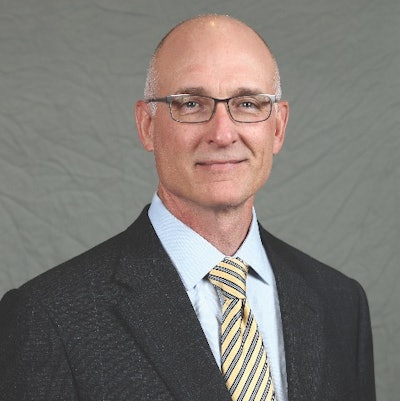What to do when surgery doesn’t go as planned
Highly respected urological surgeons share their worst-case surgical scenarios and the lessons they learned.

 Randall Meacham, MD
Randall Meacham, MD
“Although attending surgical lectures and watching videos where everything ‘goes right’ are important learning opportunities, it can be equally valuable to review cases where things did not go as planned,” said Randall Meacham, MD, professor and chief of the division of urology at the University of Colorado School of Medicine in Aurora.
In the plenary session, “When Disaster Strikes: Preventing and Managing Nightmare Cases in Urology,” on Saturday, April 29, from 8:45 to 9:45 a.m., Dr. Meacham will moderate a panel discussion that will provide a medical debriefing, a review of surgical cases in which things did not go as planned and offer insight for course correction.
“Use of a medical debriefing has become one of the most powerful tools in clinical quality improvement. When disaster strikes, it’s important to be able to turn clinical catastrophes into useful lessons that will help others avoid these pitfalls.” said Dr. Meacham, who is president-elect of the AUA. “For decades, NASA, all branches of the U.S. military and performance improvement teams in both medical and industrial settings have demonstrated the critical importance of debriefing after an adverse event in order to learn what led to the poor outcome and, more importantly, what can be done to prevent this outcome in the future.”
What can you learn from the kinds of clinical experiences many providers only encounter in their worst dreams? This session brings together highly respected urological surgeons from a number of subspecialties. They will present complications related to their areas of clinical expertise. Expert panelists include: From left: Michael Borofsky, MD; Scott Eggener, MD; Melissa Huynh, MD, MPH; and Ahmad Shabsigh, MD
From left: Michael Borofsky, MD; Scott Eggener, MD; Melissa Huynh, MD, MPH; and Ahmad Shabsigh, MD
- Michael Borofsky, MD, assistant professor of urology at the University of Minnesota Medical School in Minneapolis
- Scott Eggener, MD, co-director of the University of Chicago Medicine High-Risk and Advanced Prostate Cancer Clinic
- Melissa Huynh, MD, MPH, assistant professor in the department of surgery, division of urology, at the Schulich School of Medicine and Dentistry, Western University, in London, Ontario, Canada
- Ahmad Shabsigh, MD, associate professor of urologic oncology at The Ohio State University Comprehensive Cancer Center in Columbus
During their presentations, panelists will describe their nightmare cases and the outcomes. They will reflect on their experience and point out learning opportunities, such as identifying procedural, training or system-based factors that may have contributed to the outcome along with preventive strategies that may help you avoid an unexpected outcome in your own clinical practice.